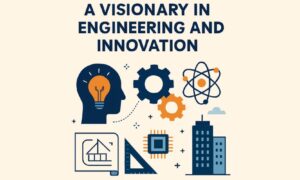Author: Saleem Shaik, Software Engineer & AI Integration Specialist
The healthcare sector has always been hesitant when it comes to adopting AI. Unlike other sectors rushing to embrace new technologies as fast as possible, the healthcare sector, by its own nature, treads lightly towards this new development and seemingly starts to accept it.
According to research published in Lancet Medical Journal, 50% of European countries already have a strategy for data sharing, and only a third of them have policies about big data and analytics in healthcare. Half of them have plans for digital health education. Countries are opening up to the idea but still developing necessary tools and skills to fully embrace it.
The most interesting part is how AI is changing the healthcare industry and in what ways.
AI in Daily Hospital Life
The influence of AI can be felt in smaller practical ways throughout daily hospital life for both patients and doctors.
For patients: AI helps organize timetables, reduce waiting periods and detect pathologies earlier through analysis of results and X-rays. AI chatbots also educate patients on what is happening to them and provide follow-up treatment advice.
For doctors: AI reduces the manual workload using AI transcription so doctors can focus on the patients.
But how do we really measure the value of AI? The value of AI should be assessed through practical indicators, which are:
- How much of the manual work has been automated;
- How much time doctors now have to spend with their patients;
- How many additional patients can now be treated at the same time.
I once worked in a clinic that used an AI chat agent for scheduling calls. Waiting time decreased, receptionists were freed for other tasks, and even triage patients got necessary help faster. The efficiency gains and improved patient experience are the true measures of AI’s value.
Another crucial question is around patient privacy. Doctors often ask me how AI can respect patients’ confidentiality while still being useful. I believe that the key rule here is always to obtain consent, collect only necessary information, and use only governance frameworks and safe technical software. Patients must know that their data is collected and used, and only with the right and safe instruments.
Why Some Hospitals Are Still Holding Back
While AI has many advantages it can bring to the healthcare sector, hospitals are still hesitant to implement it. There are three main reasons: the first one being safety and reliability. No one can guarantee that AI will give a correct diagnosis. Many doctors are also simply unaware of how to work with AI and what it can bring, and implementation of AI itself is also quite challenging.
It all comes down to education and gradual implementation of AI. First, AI must be used in non-critical settings, such as administration, so it can be seen as trustworthy before giving patients treatment and their lives to it.
If You’re Just Starting Out, Here’s My Advice
- First of all, don’t think about AI as a human replacement – AI could never replace doctors. It can only provide the necessary assistance
- It is better to put AI in a non-critical context, like administration.
- Remember to constantly train and educate your staff.
- Continuously measure the impact of AI through clear KPIs (efficiency, time saved, patient satisfaction)
Looking ahead, AI will increasingly be used to diagnose diseases in early stages, such as cancer or chronic diseases. Patients’ experience will also be improved by them having faster access to care, more personalised services. Though implementation is gradual, the direction is clear: AI is a tool empowering future healthcare systems.



































